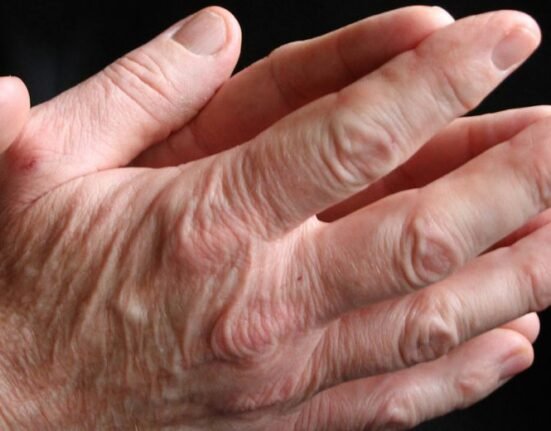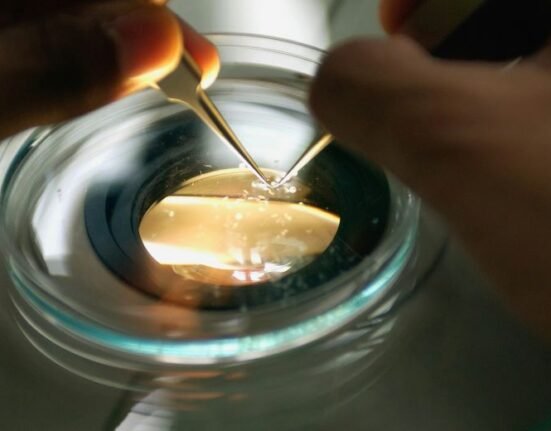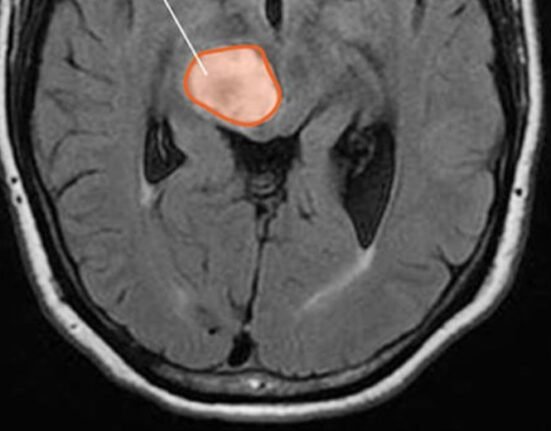HQ Team
October 2, 2024: Amplifica Holdings Group Inc.’s first-in-human trial of an injectable medicine for treating hair loss has shown a more than 15% increase in non-vellus hair count, sustained hair density and thickness over time.
The California-headquartered company’s investigational AMP-303 is an intradermal injectable treatment for androgenetic alopecia, the most common form of hair loss.
“A statistically significant percentage of study subjects showed a greater than 15% increase in non-vellus hair count from baseline compared to placebo at 60 days post-treatment and a greater than 10% increase compared to placebo at 150 days post-treatment,” according to a company statement.
The study revealed that a single treatment cycle increased non-vellus hair count and sustained hair density and thickness over time (150 days post-treatment) — a marked improvement compared to placebo.
Three types of hair occur in humans. Lanugo hair is the soft silky hair that covers the foetus in utero. It is usually shed before birth.
One treatment cycle
Vellus hair is the short fine unpigmented hair that covers the whole skin surface apart from the palms and soles. Terminal hair is longer, coarser, and pigmented.
Before puberty, terminal hair is restricted to the scalp, eyebrows and eyelashes. After puberty, secondary terminal hair develops in response to androgens on the beard area, in the axillae, pubic area and on the front of the chest in men, according to Taylor & Francis.
Amplifica, a privately held biopharmaceutical company, stated the results suggested AMP-303 had significant potential to treat hair loss after one treatment cycle.
The trial enrolled male participants aged 18 to 45 diagnosed with AGA, and stratified subjects based on the duration of their hair loss.
Paired treatment
The study divided participants into two distinct groups — those with recent onset of hair loss (3-5 years) and those experiencing more long-standing hair loss (over 10 years).
A bilaterally paired treatment design in the frontal temporal region was used, where each participant was randomized to receive AMP-303 on one side of the scalp and a placebo on the other, allowing for direct comparison among individuals.
“AMP-303 was observed to be safe and well tolerated. The study results also demonstrated AMP-303’s ability to stimulate the transition of vellus hairs into non-vellus hairs, further emphasising the treatment’s potential for reversing hair loss,” according to the statement.
Androgenetic alopecia is a genetically predetermined disorder due to an excessive response to androgens. This condition affects up to 50% of males and females and is characterized by progressive loss of terminal hair of the scalp any time after puberty.
It follows a characteristic distribution in both males and females, according to the National Center for Biotechnology Information.
‘Additional programs’
“The ability to demonstrate measurable improvements in hair regrowth with just one treatment cycle is a breakthrough in addressing androgenetic alopecia,” said Frank Fazio, President and CEO of Amplifica.
“The success of the AMP-303 study not only validates our approach but also sets the foundation for advancing additional programs in Amplifica’s pipeline,” he said.
William Rassman, MD, a pioneer in hair restoration surgery and Amplifica co-founder said: “The results observed in the frontal temporal region are particularly encouraging, as this area has traditionally been one of the most challenging to demonstrate a clinical response.”
Amplifica plans to advance AMP-303 through additional clinical trials to further explore its therapeutic potential for both men and women suffering from hair loss.
The company aims to develop AMP-303 as a highly differentiated option in the hair loss treatment landscape, which is currently limited to daily-use topical and oral therapies.









11 Comments
Comments are closed.